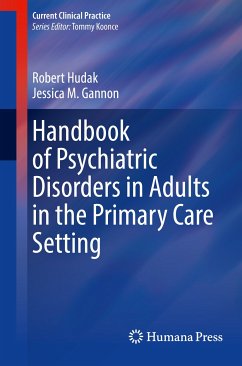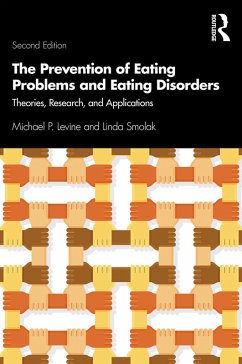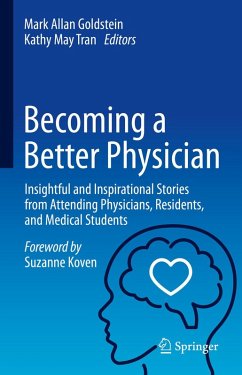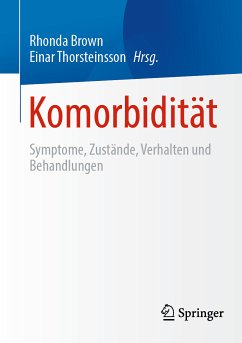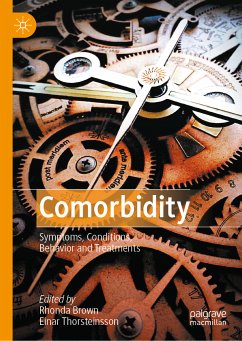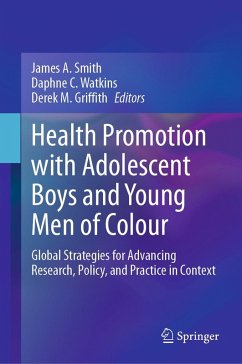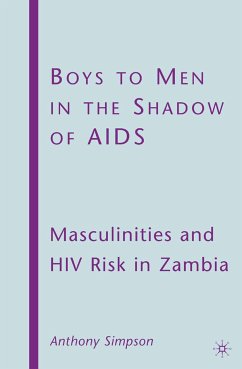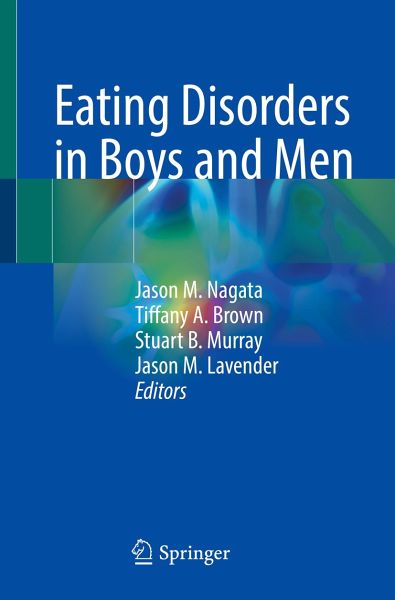
Eating Disorders in Boys and Men (eBook, PDF)
Versandkostenfrei!
Sofort per Download lieferbar
80,95 €
inkl. MwSt.
Weitere Ausgaben:

PAYBACK Punkte
40 °P sammeln!
Boys and men with eating disorders remain a population that is under-recognized and underserved within both research and clinical contexts. It has been well documented that boys and men with eating disorders often exhibit distinct clinical presentations with regard to core cognitive (e.g., body image) and behavioral (e.g., pathological exercise) symptoms. Such differences, along with the greater likelihood of muscularity-oriented disordered eating among boys and men, emphasize the importance of understanding and recognizing unique factors of clinical relevance within this population.This book ...
Boys and men with eating disorders remain a population that is under-recognized and underserved within both research and clinical contexts. It has been well documented that boys and men with eating disorders often exhibit distinct clinical presentations with regard to core cognitive (e.g., body image) and behavioral (e.g., pathological exercise) symptoms. Such differences, along with the greater likelihood of muscularity-oriented disordered eating among boys and men, emphasize the importance of understanding and recognizing unique factors of clinical relevance within this population.
This book reviews the most up-to-date research findings on eating disorders among boys and men, with an emphasis on clinically salient information across multiple domains. Five sections are included, with the first focused on a historical overview and the unique nature and prevalence of specific forms of eating disorder symptoms and body image concerns in boys and men. The secondsection details population-specific considerations for the diagnosis and assessment of eating disorders, body image concerns, and muscle dysmorphia in boys and men. The third section identifies unique concerns regarding medical complications and care in this population, including medical complications of appearance and performance-enhancing substances. The fourth section reviews current findings and considerations for eating disorder prevention and intervention for boys and men. The fifth section of the book focuses on specific populations (e.g., sexual minorities, gender minorities) and addresses sociocultural factors of particular relevance for eating disorders in boys and men (e.g., racial and ethnic considerations, cross-cultural considerations). The book then concludes with a concise overview of key takeaways and a focused summary of current evidence gaps and unanswered questions, as well as directions for future research.
Written by experts in thefield, Eating Disorders in Boys and Men is a comprehensive guide to an under-reported topic. It is an excellent resource for primary care physicians, adolescent medicine physicians, pediatricians, psychologists, clinical social workers, and any other professional conducting research with or providing clinical care for boys and men with eating disorders. It is also an excellent resource for students, residents, fellows, and trainees across various disciplines.
This book reviews the most up-to-date research findings on eating disorders among boys and men, with an emphasis on clinically salient information across multiple domains. Five sections are included, with the first focused on a historical overview and the unique nature and prevalence of specific forms of eating disorder symptoms and body image concerns in boys and men. The secondsection details population-specific considerations for the diagnosis and assessment of eating disorders, body image concerns, and muscle dysmorphia in boys and men. The third section identifies unique concerns regarding medical complications and care in this population, including medical complications of appearance and performance-enhancing substances. The fourth section reviews current findings and considerations for eating disorder prevention and intervention for boys and men. The fifth section of the book focuses on specific populations (e.g., sexual minorities, gender minorities) and addresses sociocultural factors of particular relevance for eating disorders in boys and men (e.g., racial and ethnic considerations, cross-cultural considerations). The book then concludes with a concise overview of key takeaways and a focused summary of current evidence gaps and unanswered questions, as well as directions for future research.
Written by experts in thefield, Eating Disorders in Boys and Men is a comprehensive guide to an under-reported topic. It is an excellent resource for primary care physicians, adolescent medicine physicians, pediatricians, psychologists, clinical social workers, and any other professional conducting research with or providing clinical care for boys and men with eating disorders. It is also an excellent resource for students, residents, fellows, and trainees across various disciplines.
Dieser Download kann aus rechtlichen Gründen nur mit Rechnungsadresse in A, B, BG, CY, CZ, D, DK, EW, E, FIN, F, GR, HR, H, IRL, I, LT, L, LR, M, NL, PL, P, R, S, SLO, SK ausgeliefert werden.




